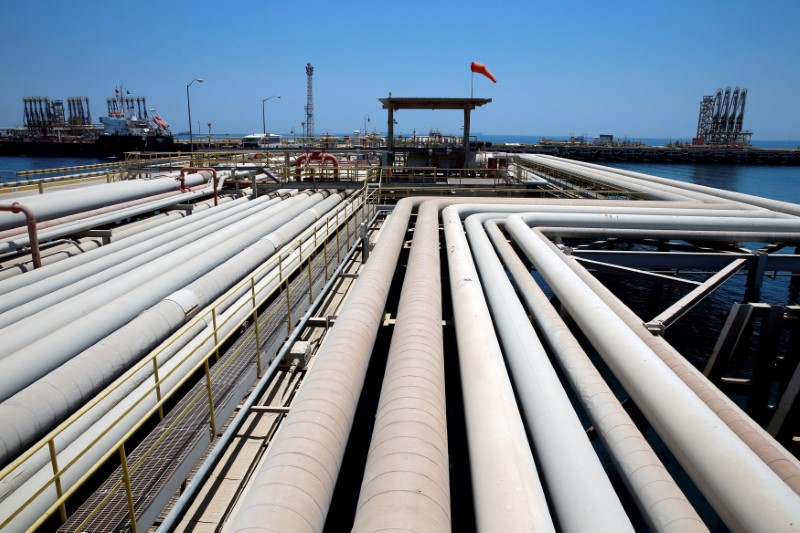 © Reuters. FILE PHOTO: An oil tanker is being loaded at Saudi Aramco’s Ras Tanura oil refinery and oil terminal in Saudi Arabia
© Reuters. FILE PHOTO: An oil tanker is being loaded at Saudi Aramco’s Ras Tanura oil refinery and oil terminal in Saudi ArabiaBy Alex Lawler
LONDON (Reuters) – Iran criticized Saudi Arabia’s plan to raise oil output and pressure from the United States on Riyadh do so, saying this was in breach of OPEC’s decision last week and belittled the producer group.
OPEC and a group of non-OPEC countries agreed on Saturday that they would return to 100 percent compliance with previously agreed oil output cuts, after months of underproduction by OPEC countries including Venezuela and Angola.
Iran’s OPEC governor, Hossein Kazempour Ardebili, was reacting to various news reports on Monday and Tuesday that Saudi Arabia would boost output in July to 10.6 million barrels a day, 10.8 million bpd and 11.0 million bpd, up from its OPEC target of 10.058 million bpd.
On Monday, U.S. Energy Secretary Rick Perry said the deal by the Organization of the Petroleum Exporting Countries may not be enough to relieve the oil market.
“The State Department says it is short and Saudi Arabia says they will produce 11 million bpd in July. I regret to say they both are ridiculing our organization,” Kazempour told Reuters.
The comments underline the depth of the disagreement between Iran and Saudi Arabia, longtime rivals in the Organization of the Petroleum Exporting Countries, over the interpretation of OPEC’s deal in Vienna last week.
Saudi Energy Minister Khalid al-Falih said the OPEC deal implied an indirect reallocation of extra production from countries unable to produce more oil to those, such as his own, that are able to do so.
Iran strongly disagrees.
“In the last meeting of OPEC, our resolution does not allow any member to produce more than their quota, but to try to reach 100 percent compliance,” Kazempour said.
“There is no mandate to breach our accord. If they do, it means the State Department is running OPEC.”
Before the meeting, Iran had demanded OPEC reject calls from U.S. President Donald Trump for an increase in oil supply, arguing that he had contributed to a recent rise in prices by imposing sanctions on Iran and Venezuela.
The U.S. call on Saudi Arabia to raise output comes as the United States has urged countries to cut all imports of Iranian oil from November.
Iran, in response, said removing Iranian oil from the market by then is impossible.
Fusion Media or anyone involved with Fusion Media will not accept any liability for loss or damage as a result of reliance on the information including data, quotes, charts and buy/sell signals contained within this website. Please be fully informed regarding the risks and costs associated with trading the financial markets, it is one of the riskiest investment forms possible.
Source: Investing.com




























